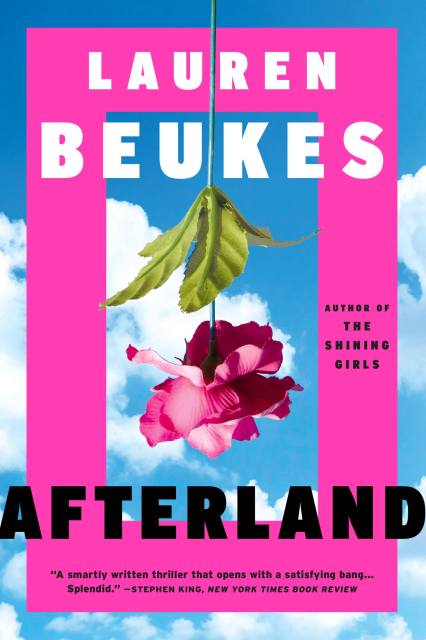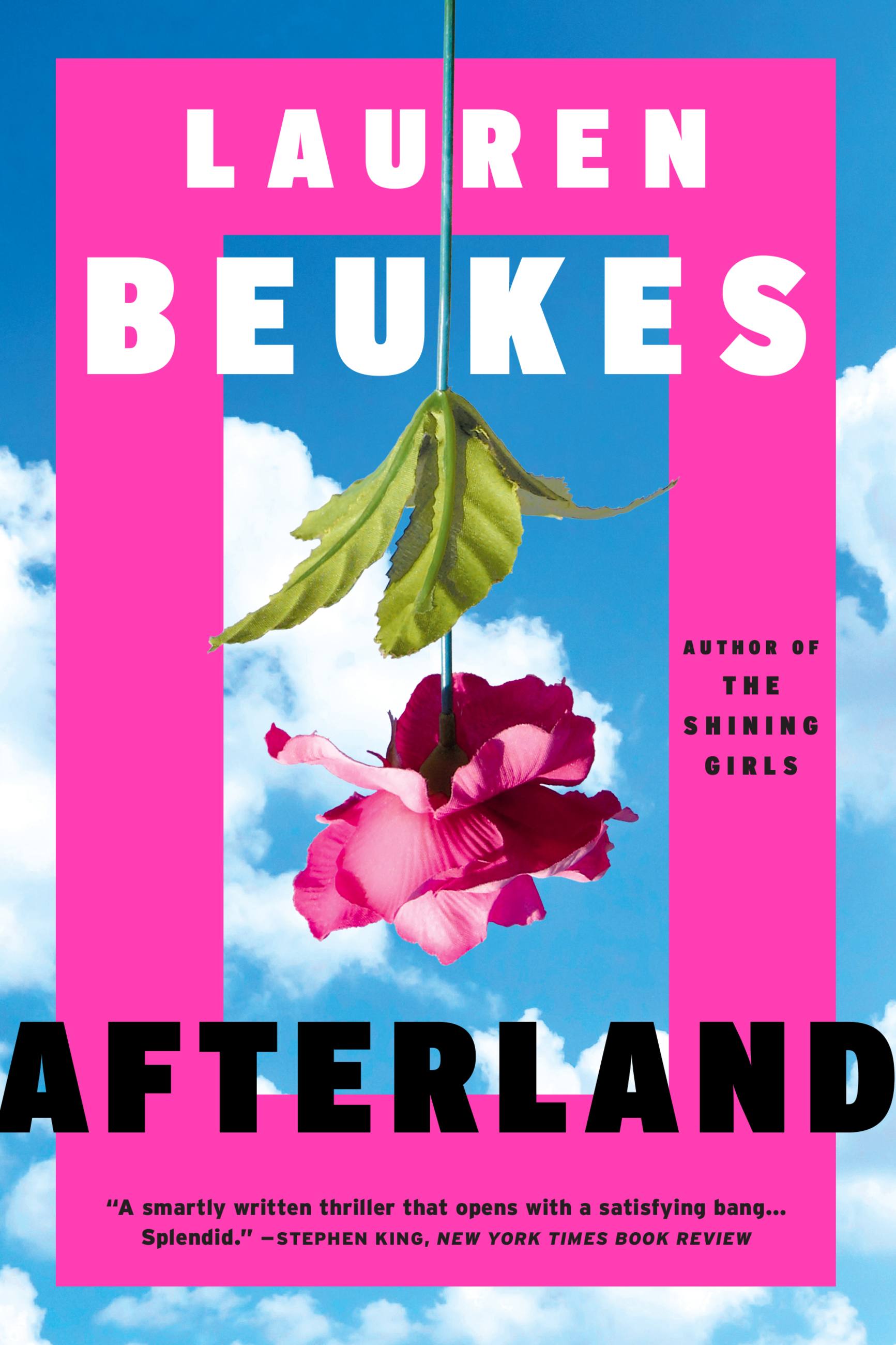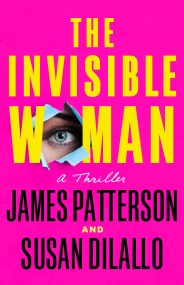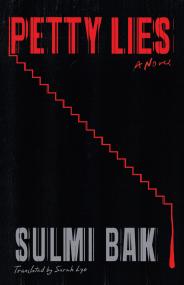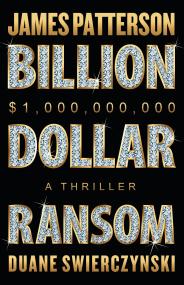By clicking “Accept,” you agree to the use of cookies and similar technologies on your device as set forth in our Cookie Policy and our Privacy Policy. Please note that certain cookies are essential for this website to function properly and do not require user consent to be deployed.
Afterland
Contributors
Formats and Prices
- On Sale
- Jul 28, 2020
- Page Count
- 416 pages
- Publisher
- Mulholland Books
- ISBN-13
- 9780316267847
Price
$11.99Price
$14.99 CADFormat
Format:
- ebook $11.99 $14.99 CAD
- Audiobook Download (Unabridged)
- Trade Paperback $16.99 $22.99 CAD
This item is a preorder. Your payment method will be charged immediately, and the product is expected to ship on or around July 28, 2020. This date is subject to change due to shipping delays beyond our control.
Buy from Other Retailers:
Children of Men meets The Handmaid's Tale in this "smartly written" and "splendid" thriller about how far a mother will go to protect her son from a hostile world transformed by the absence of men (Stephen King).
Most of the men are dead. Three years after the pandemic known as The Manfall, governments still hold and life continues—but a world run by women isn't always a better place.
Twelve-year-old Miles is one of the last boys alive, and his mother, Cole, will protect him at all costs. On the run after a horrific act of violence-and pursued by Cole's own ruthless sister, Billie—all Cole wants is to raise her kid somewhere he won't be preyed on as a reproductive resource or a sex object or a stand-in son. Someplace like home.
To get there, Cole and Miles must journey across a changed America in disguise as mother and daughter. From a military base in Seattle to a luxury bunker, from an anarchist commune in Salt Lake City to a roaming cult that's all too ready to see Miles as the answer to their prayers, the two race to stay ahead at every step . . . even as Billie and her sinister crew draw closer.
A sharply feminist, high-stakes thriller from award-winning author Lauren Beukes, Afterland brilliantly blends psychological suspense, American noir, and science fiction into an adventure all its own—and perfect for our times.
Most of the men are dead. Three years after the pandemic known as The Manfall, governments still hold and life continues—but a world run by women isn't always a better place.
Twelve-year-old Miles is one of the last boys alive, and his mother, Cole, will protect him at all costs. On the run after a horrific act of violence-and pursued by Cole's own ruthless sister, Billie—all Cole wants is to raise her kid somewhere he won't be preyed on as a reproductive resource or a sex object or a stand-in son. Someplace like home.
To get there, Cole and Miles must journey across a changed America in disguise as mother and daughter. From a military base in Seattle to a luxury bunker, from an anarchist commune in Salt Lake City to a roaming cult that's all too ready to see Miles as the answer to their prayers, the two race to stay ahead at every step . . . even as Billie and her sinister crew draw closer.
A sharply feminist, high-stakes thriller from award-winning author Lauren Beukes, Afterland brilliantly blends psychological suspense, American noir, and science fiction into an adventure all its own—and perfect for our times.
-
Named one of the Hottest Books of the SummerGoodreads * Entertainment Weekly * Good Housekeeping * Milwaukee Journal Sentinel * Publishers Weekly * PopSugar * Literary Hub * CrimeReads
-
“A smartly written thriller that opens with a satisfying bang . . . Beukes is all about turning assumptions and expectations upside down. . . . Think of a world where Donald Trump and Ted Cruz have gone to their reward, but Ruth Bader Ginsburg keeps on trucking. That doesn’t sound so bad, does it?”Stephen King, New York Times Book Review
-
"Bowstring-taut, visceral, and incredibly timely: Beukes's plague-tale is a parable about the glory and terror of Americanism in times of calamity."Cory Doctorow, author of Walkaway and Little Brother
-
"Part thriller, part science fiction, and all amazing"Good Housekeeping
-
“Beukes is such an idiosyncratic writer — one who deftly mashes up suspense, sci-fi, horror, time travel, and, yes, dystopian fiction — that she’s hard to ignore. . . . Beukes imbues what could have simply been a sensational thriller with psychological depth and sharp detail. For those whose taste for dystopian suspense is undiminished, Beukes’s tale of a mother and son making their way across a post-pandemic-ravaged landscape is prescient and taut.”Maureen Corrigan, Washington Post
-
"A post-pandemic gender-spun thriller that's sharp-as-a-pin and manages both urgency and relevancy in equal measure. Gripping prose from the first page that made me want to be a better writer. Beukes always moves to the top of my must-read list."Chuck Wendig, author of national bestseller Wanderers
-
"A harrowing tale that ably explores grief, motherhood, and gender roles . . . Beukes is a gifted storyteller who makes it thrillingly easy for readers to fall under her spell as she weaves a hypnotic vision of a fractured world without men. A propulsive and all-too-timely near-future thriller."Kirkus Reviews
-
"Lauren Beukes is a writer with a startling imagination, and a masterful ability to rewrite the rules of whatever genre she turns to; and now, right on time, she has turned to dystopian plague."Ben Winters, author of Underground Airlines and Golden State
-
"Eerily relevant . . . Beukes' tender, insightful treatment of the relationship between mother and son is significant, and the interplay between feuding sisters is fascinating, as well."Booklist
-
"Deeply compelling . . . I haven't been able to stop thinking about Afterland. Beukes brings a deep tenderness to the tangle of humanity that comes with widespread grief and clumsy attempts at coping with the weight of loss. This is really something special."Sarah Gailey, author of Upright Women Wanted and Magic For Liars
-
"I'm an enormous fan of Lauren Beukes. She's an endlessly interesting writer, able to bend and weld genre to ask provocative questions and bring light to the shadows of the human condition. Afterland is a thoroughly gripping, imaginative thriller about a mother protecting her son, a rare survivor of a devastating plague that wiped out most of Earth's male population. In this new world, women exercise power for and against each other--the power of love, the power of violence, unleashed in the absence of men."Steph Cha, author of Your House Will Pay
-
"Beukes nails the speed of the unraveling, and the strangeness of living in a suddenly altered world. I hope none of the rest of it comes true."Emily Temple, Lit Hub
-
"A timely postapocalyptic tale"PopSugar
-
"Intriguing and all too timely . . . Fans of high-concept feminist SF thrillers will be enthralled. . . . A worthy addition to the pandemic fiction subgenre."Publishers Weekly
Newsletter Signup
By clicking ‘Sign Up,’ I acknowledge that I have read and agree to Hachette Book Group’s Privacy Policy and Terms of Use
